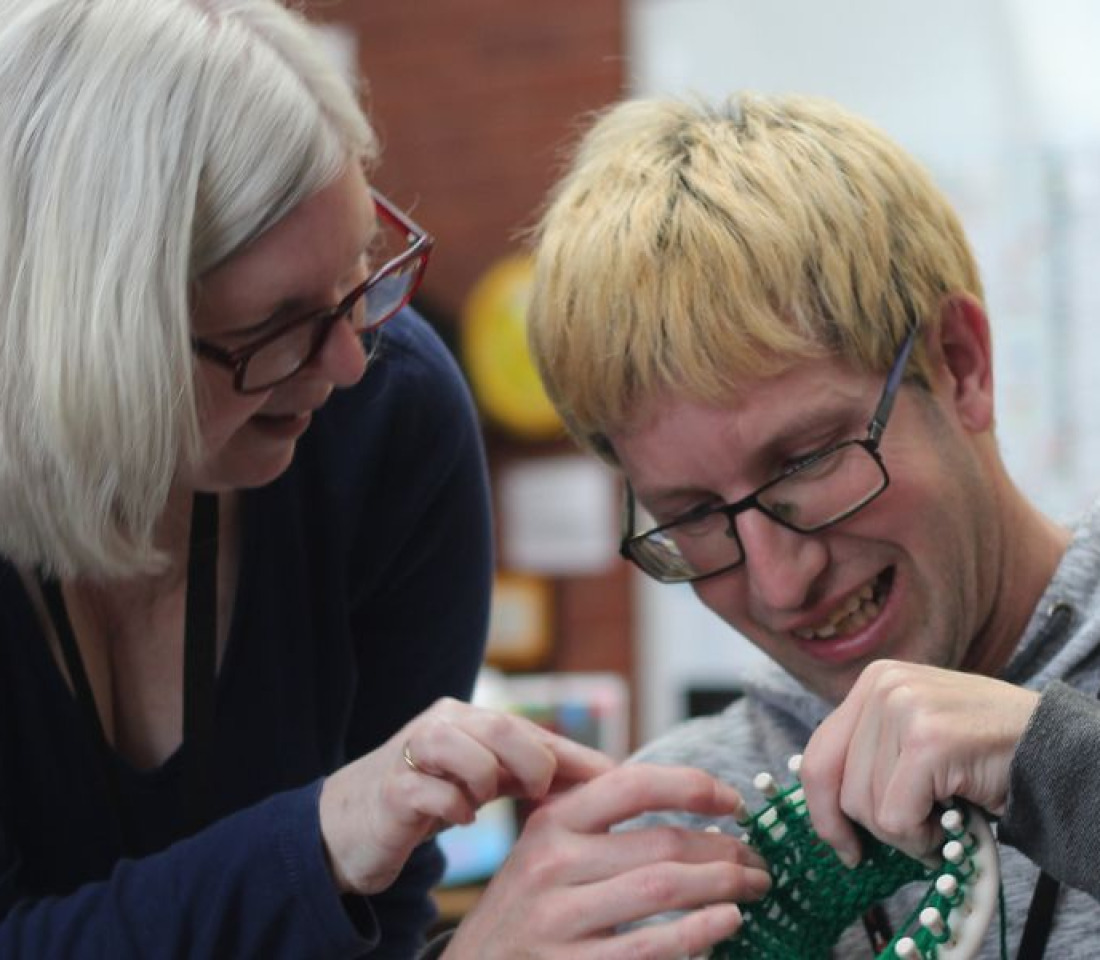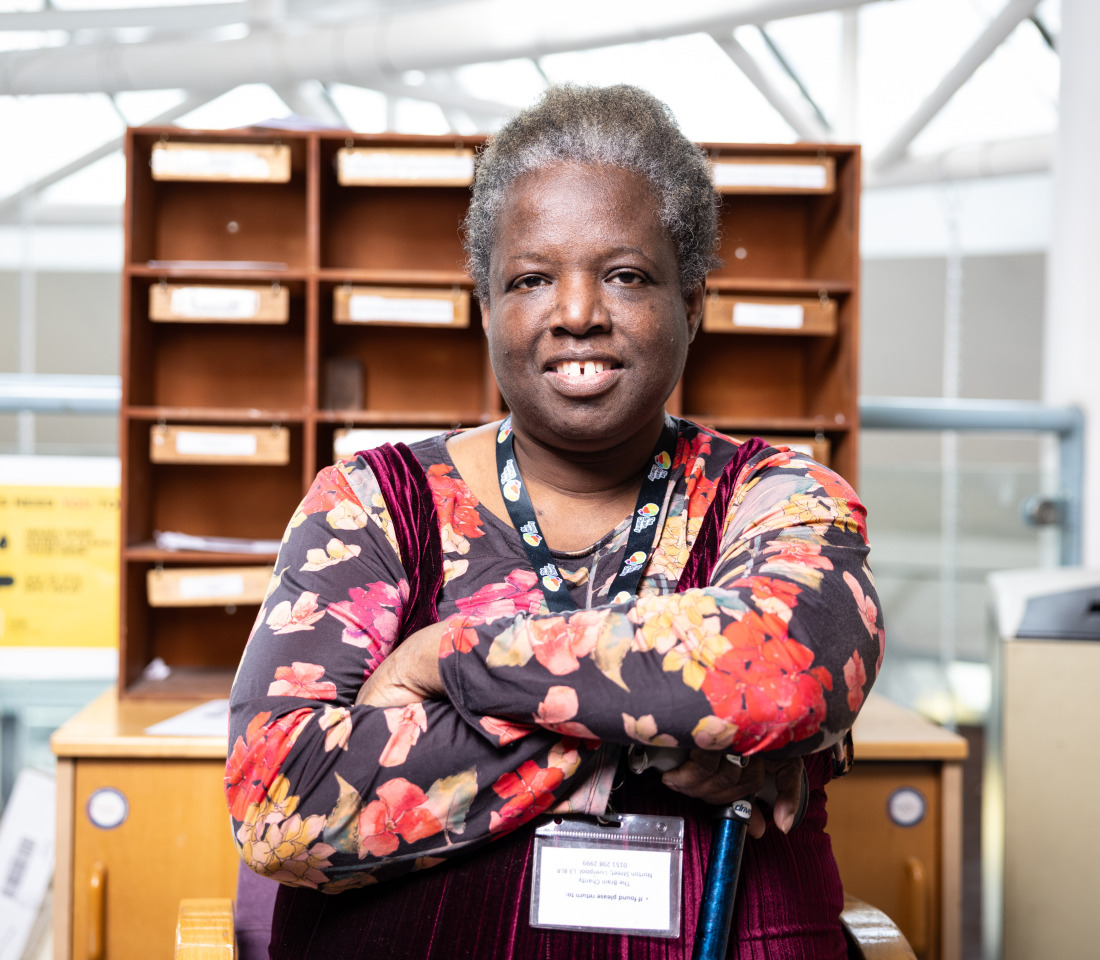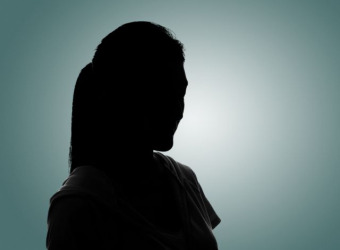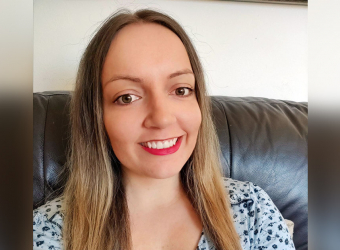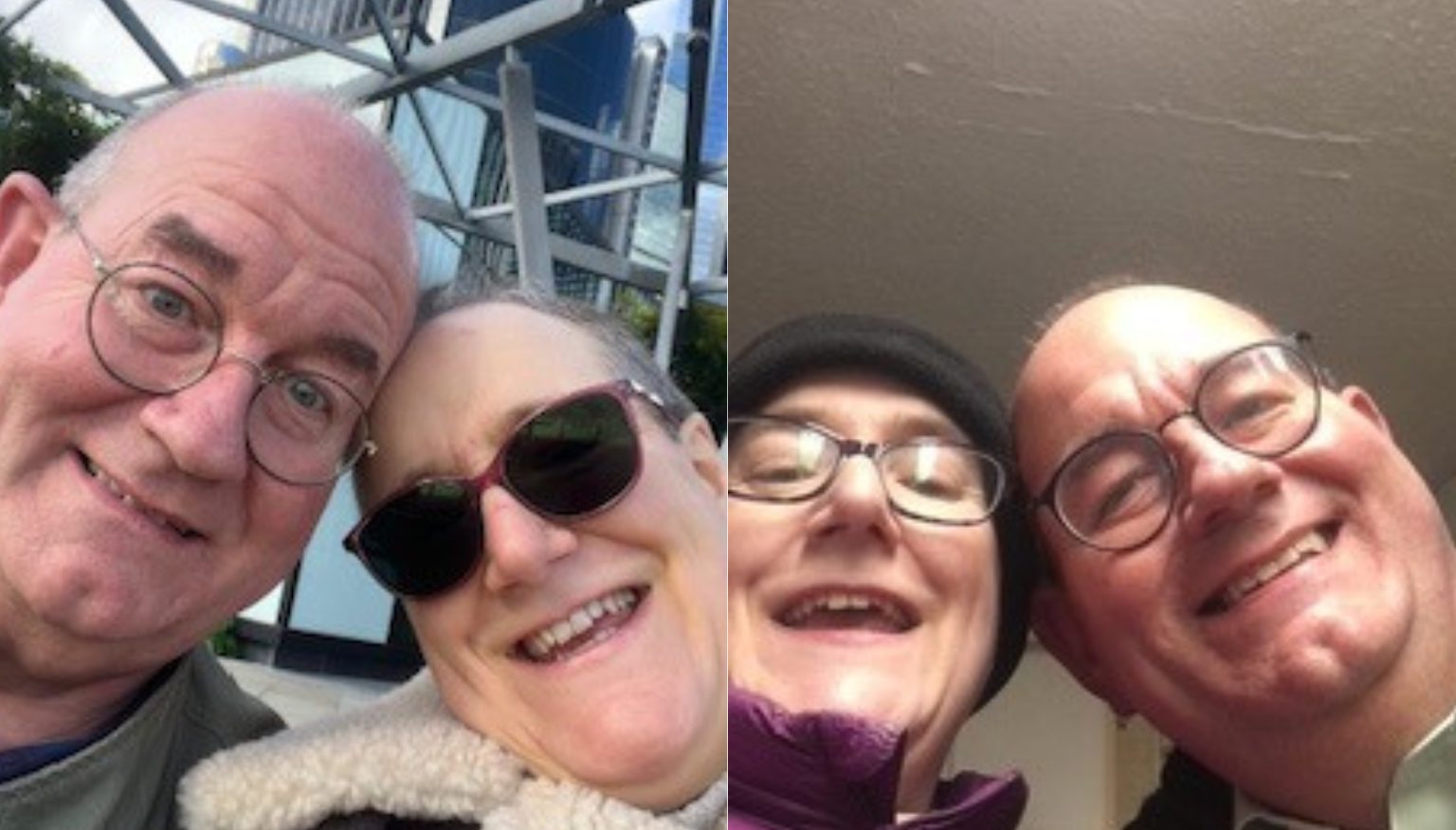
Helen’s life with Functional Neurological Disorder
"When I was first diagnosed with FND, some doctors didn't even know what it was. You end up having to explain it to them. That's why charities like The Brain Charity are so important — they educate people living with these conditions, as well as the professionals."
Now in her early 60s, Helen from Scotland had always been active and community-minded. She and her husband Bob ran a busy village shop and post office for years. She also worked as a PA and separately helped a neighbour living with Parkinson’s by transcribing his book.
Outside of work, she found joy in riding her horses and walking her dog. But four years ago, Helen’s life changed when she began experiencing weakness, difficulty climbing the stairs, and increasing pain in her arms and legs.
“I knew something was wrong when I couldn’t get myself up to bed at night without pulling myself along the stairs. I even struggled to get on my horse. There was a weakness somewhere that just wasn’t right.”

Helen’s doctors, aware she was already living with panhypopituitarism — a condition that prevents the pituitary gland from producing essential hormones — referred her to London for specialist nerve testing. There, a Hoover test confirmed the diagnosis: Functional Neurological Disorder (FND).
What is Functional Neurological Disorder?
FND is one of the most common neurological conditions you’ve never heard of. It is the name given to medically unexplained neurological symptoms which appear to be caused by problems in the nervous system but are not linked to a specific disease or structural damage.
It affects how the brain and body send and receive signals, meaning the problem lies in the system’s functioning rather than its structure. This can cause a wide range of symptoms, including difficulty walking, weakness, balance problems, tremors, sensory changes, pain, fatigue, brain fog, and speech difficulties.
FND can affect anyone at any age, and its exact cause is often unknown. It is not “all in the mind” — symptoms are very real, often life-changing, and for many people, progressive over time.
“It had been hiding behind the panhypopituitarism in some ways. But as I’ve got older, it’s grown arms and legs — it’s taking more and more from me.”
Living with FND

For Helen, FND brings severe fatigue, nerve pain, muscle weakness, and brain fog, particularly when she is tired. The extra effort her brain makes to send signals to her muscles leaves her exhausted.
She now needs a walking stick for support and has had to close the shop. Day-to-day tasks that were once second nature now require help from others.
“I get weakness, but not pain, in my legs. I need help getting upstairs. When I’m tired, my speech can be affected too.”
Her panhypopituitarism adds another layer of complexity — the non-cancerous tumour on her pituitary gland, previously treated with radiotherapy, has left her unable to produce hormones naturally.
Support and resilience
Through it all, Helen has had unwavering support from her husband Bob, a local councillor.
“Bob’s fantastic — he’s been supporting me for 40 years. He even cuts my hair now because after radiotherapy, it never grew back the same. I just keep it short, and Bob does it for me.”
Bob’s care extends far beyond the practical. He has been her advocate at medical appointments, helping to explain her symptoms and making sure her voice is heard. He takes on tasks around the home that Helen can no longer manage, from cooking and housework to looking after the animals.
Bob is also her emotional anchor — offering reassurance on difficult days, finding ways to make her smile, and encouraging her to keep going when fatigue or pain threatens to overwhelm her.
Helen says their long partnership has been built on teamwork and understanding, and that Bob’s patience and loyalty have made it possible for her to adapt to her new reality.
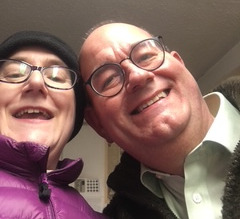
A lack of understanding
Helen is candid about the lack of understanding she has sometimes encountered when speaking to healthcare professionals about her conditions.
“When I was first diagnosed with FND, some doctors didn’t even know what it was. You end up having to explain it to them. That’s why charities like The Brain Charity are so important — they educate people living with these conditions, as well as the professionals. They give you the information and understanding that you often can’t get from your GP. They’re a place to go for advice, resources, and reassurance that you’re not alone in this. They help remove stigma and make you feel believed.”
While her conditions are progressive, Helen remains determined to adapt and to share her story to raise awareness of the challenges people with neurological disorders face every day.
Categories: Guest blogs, Real life stories
Published: 2 September 2025

